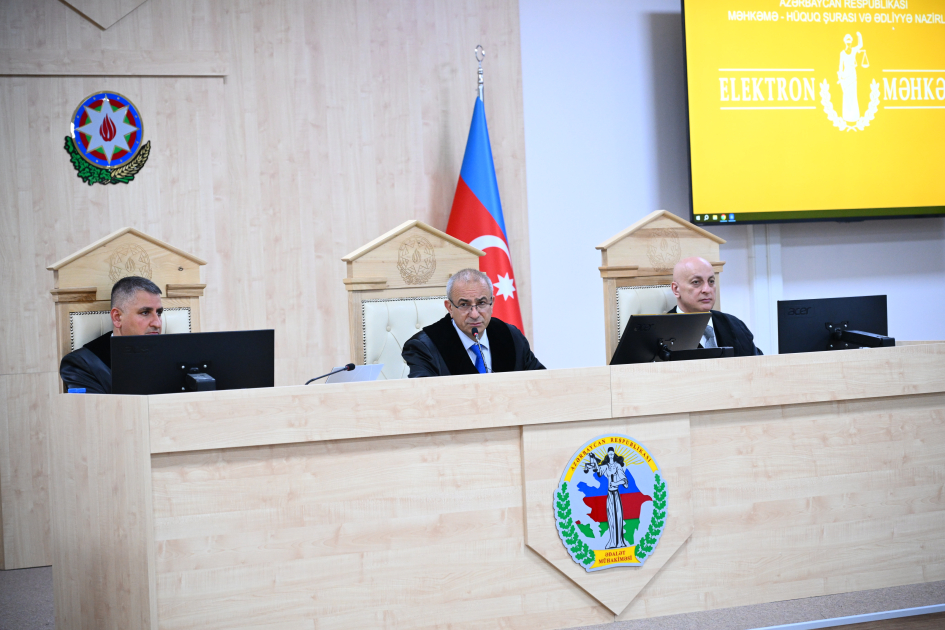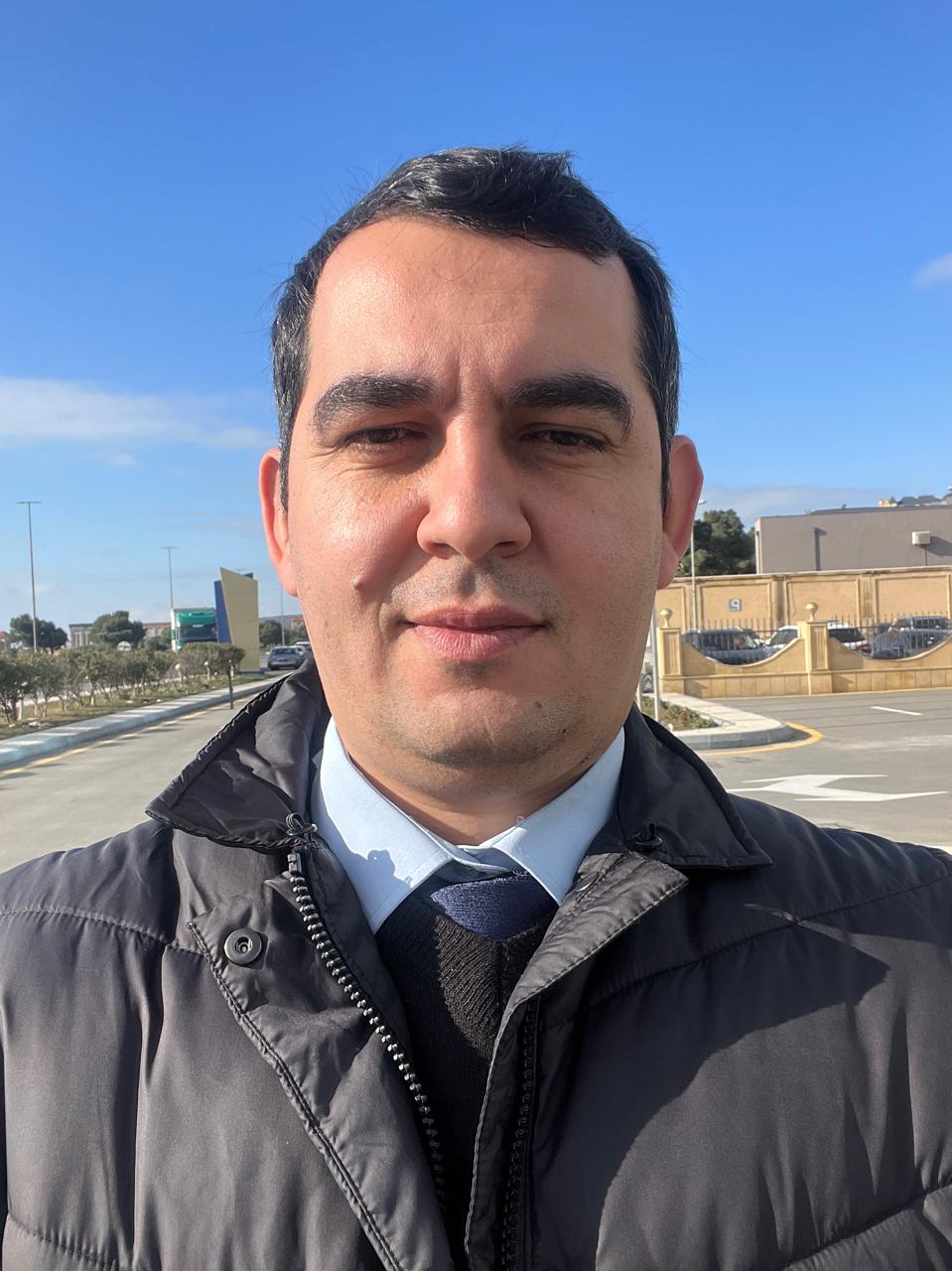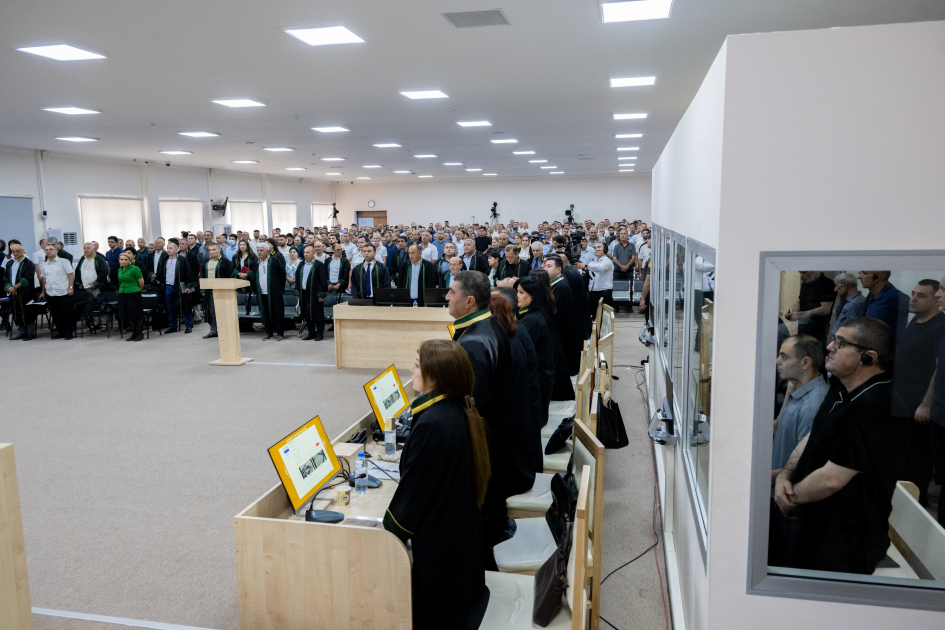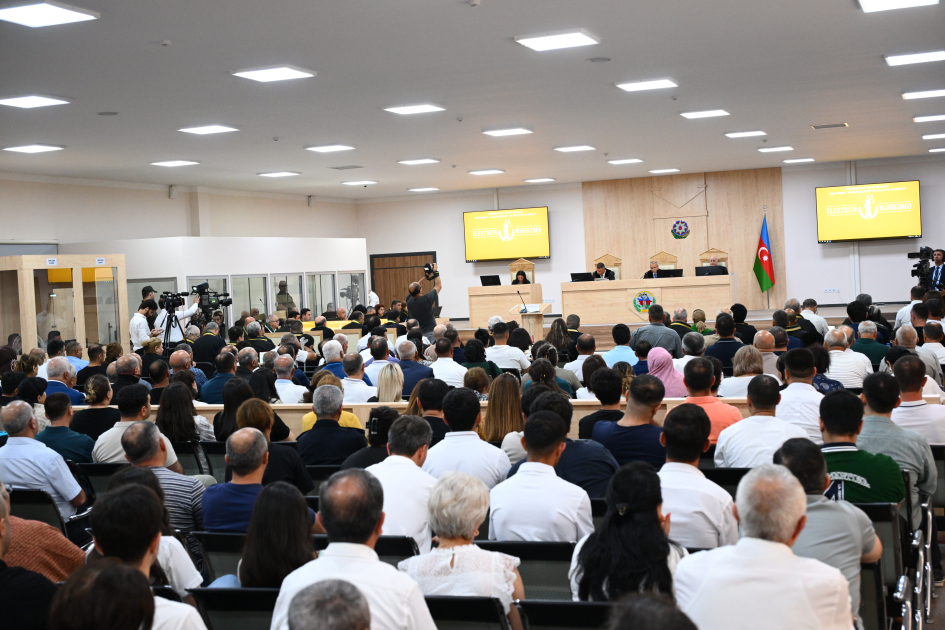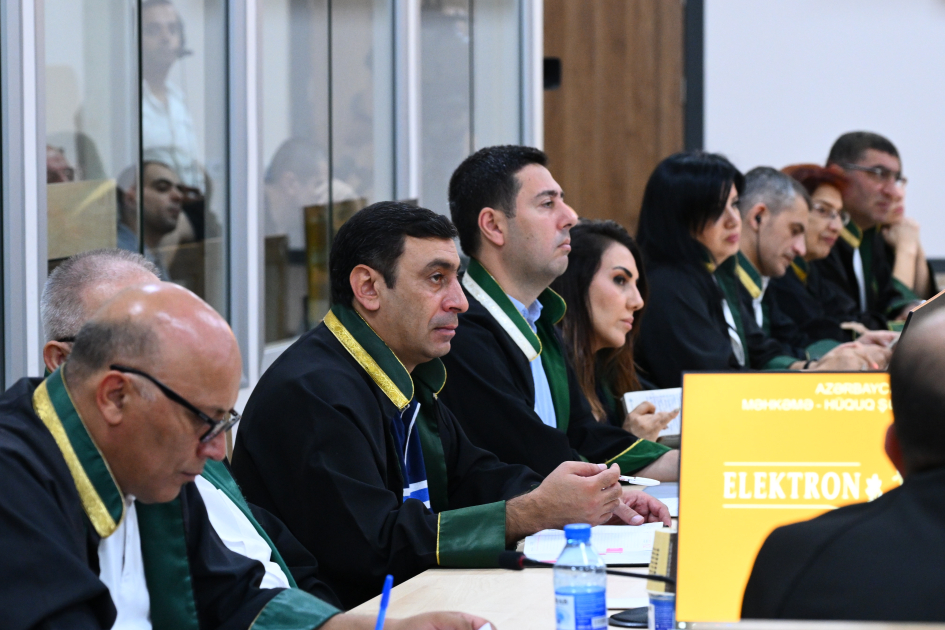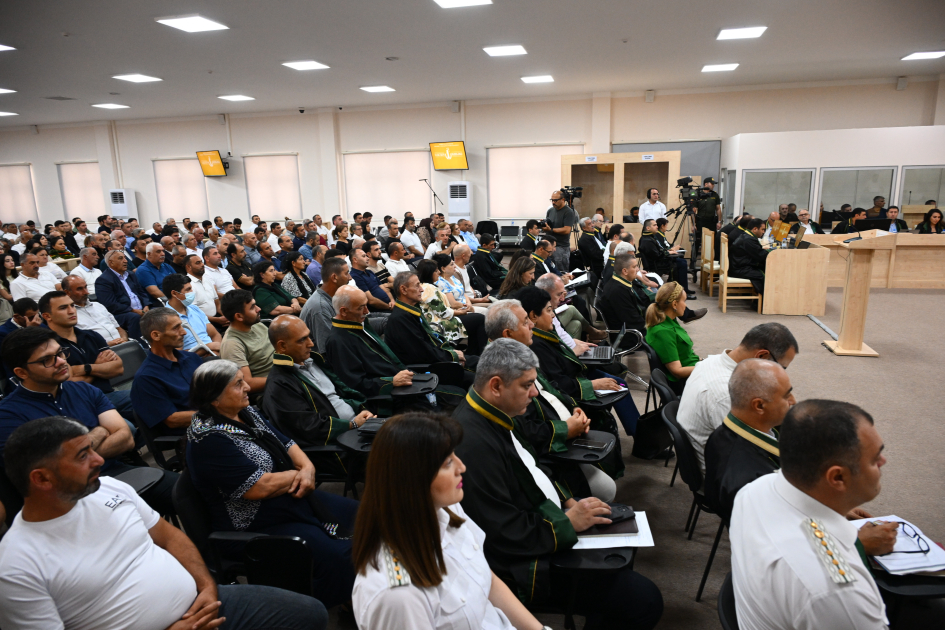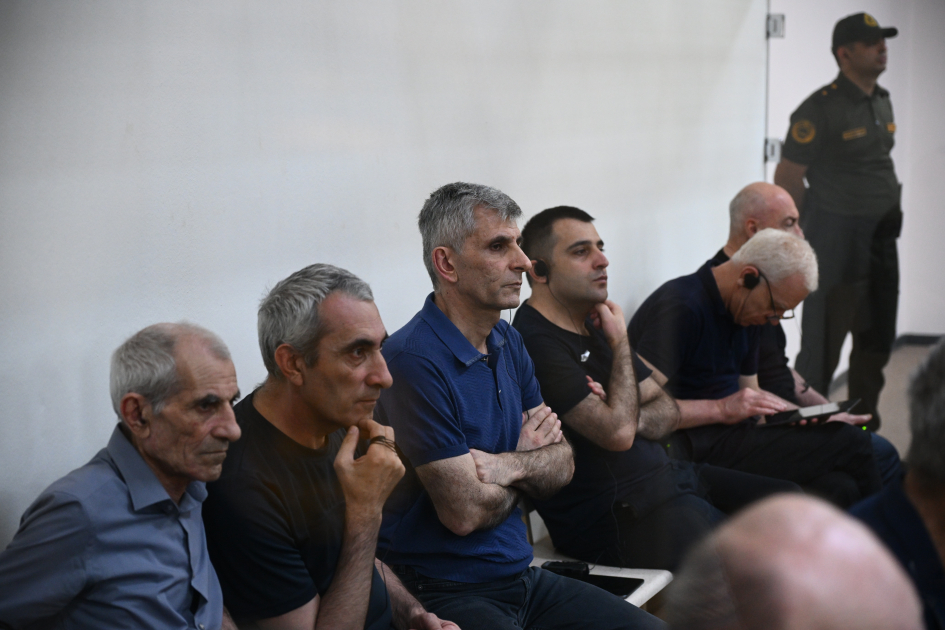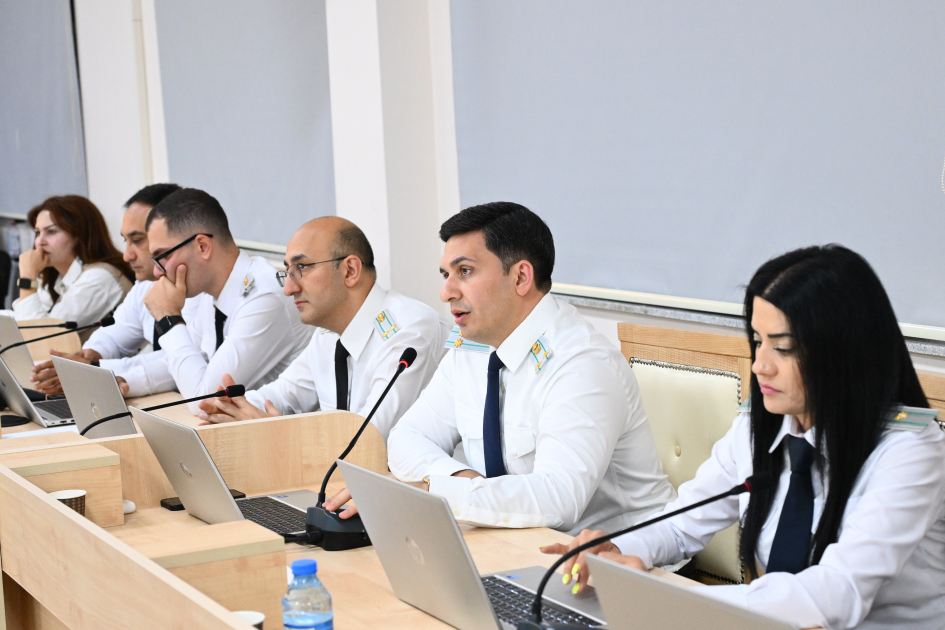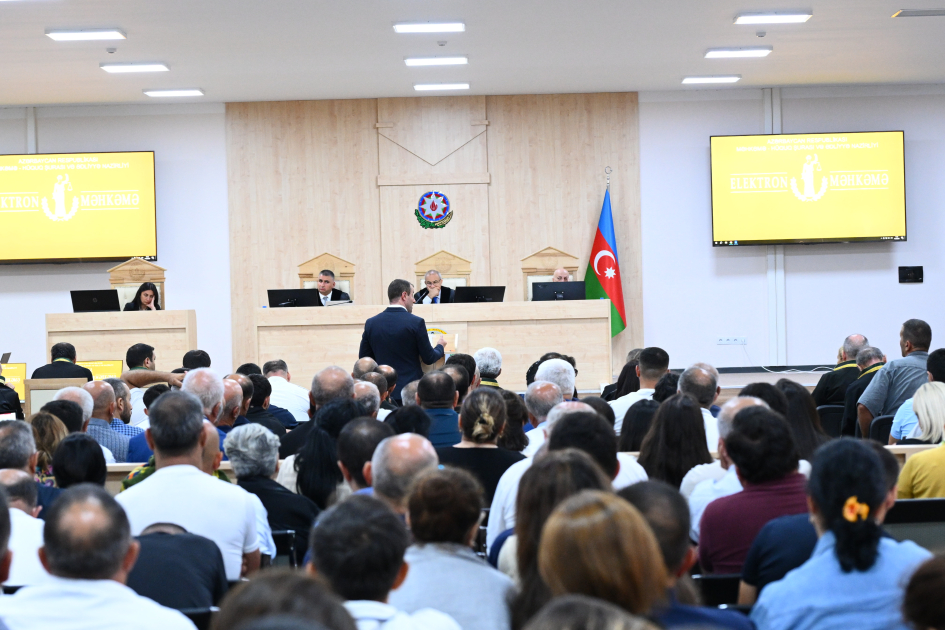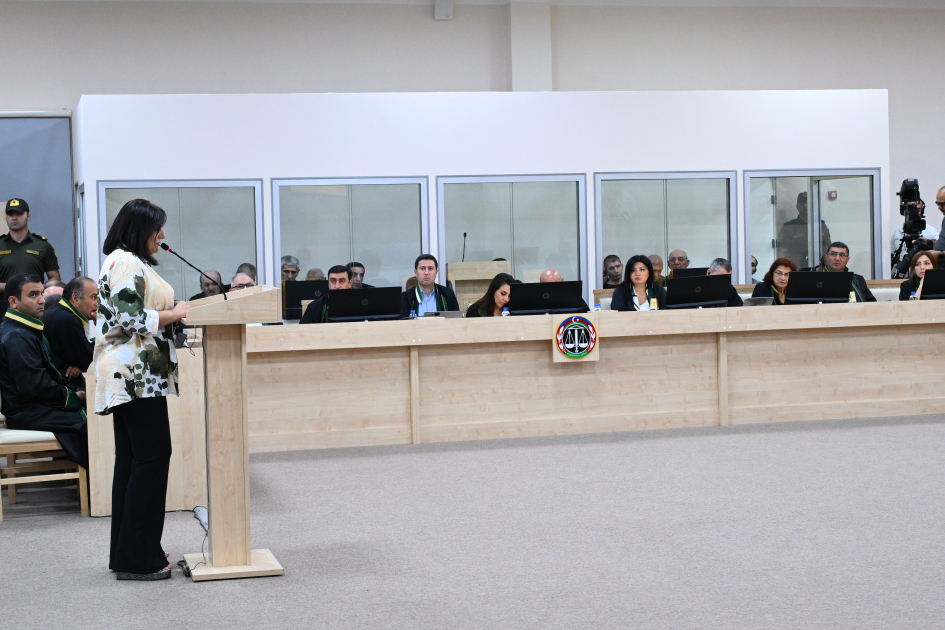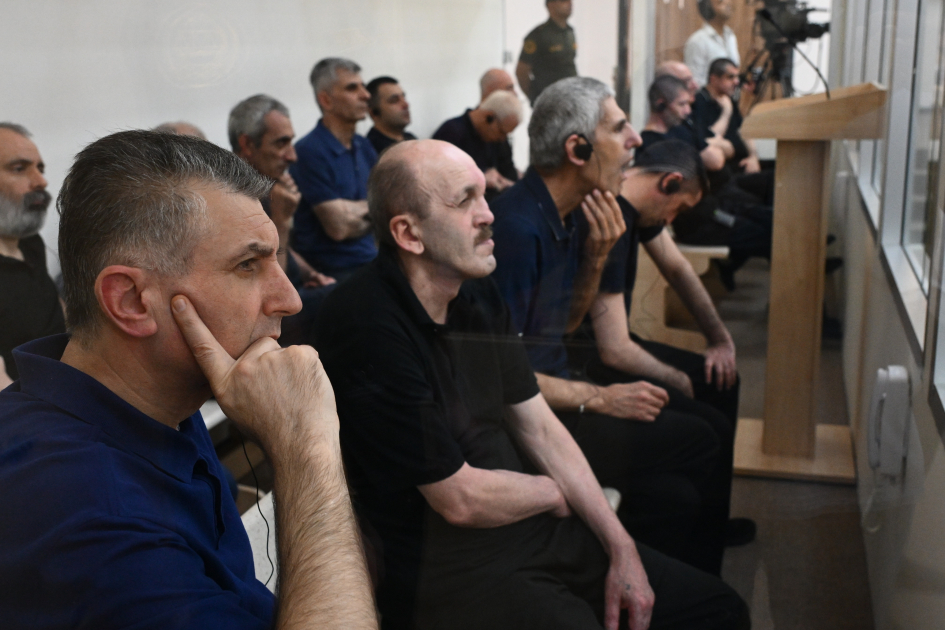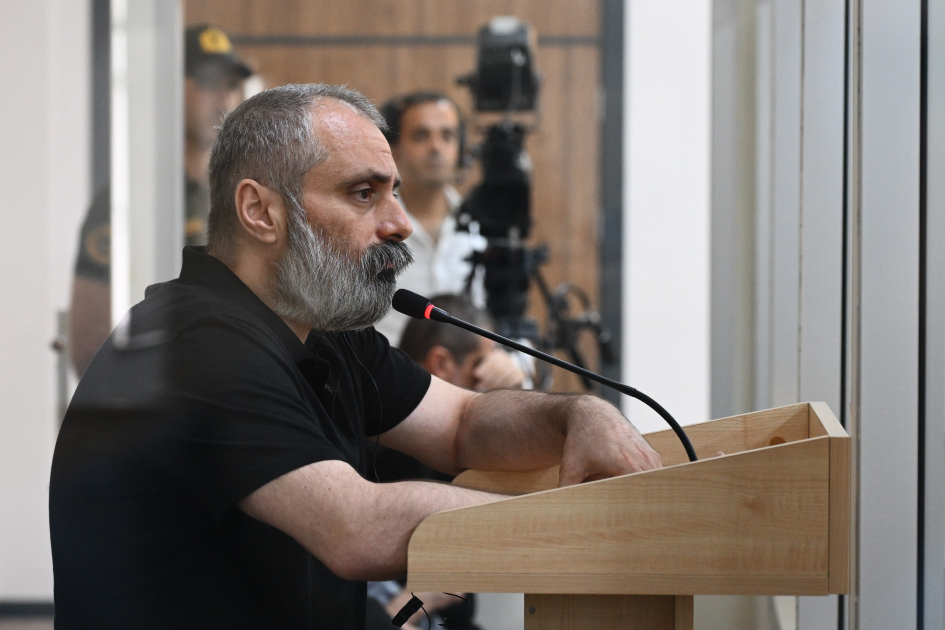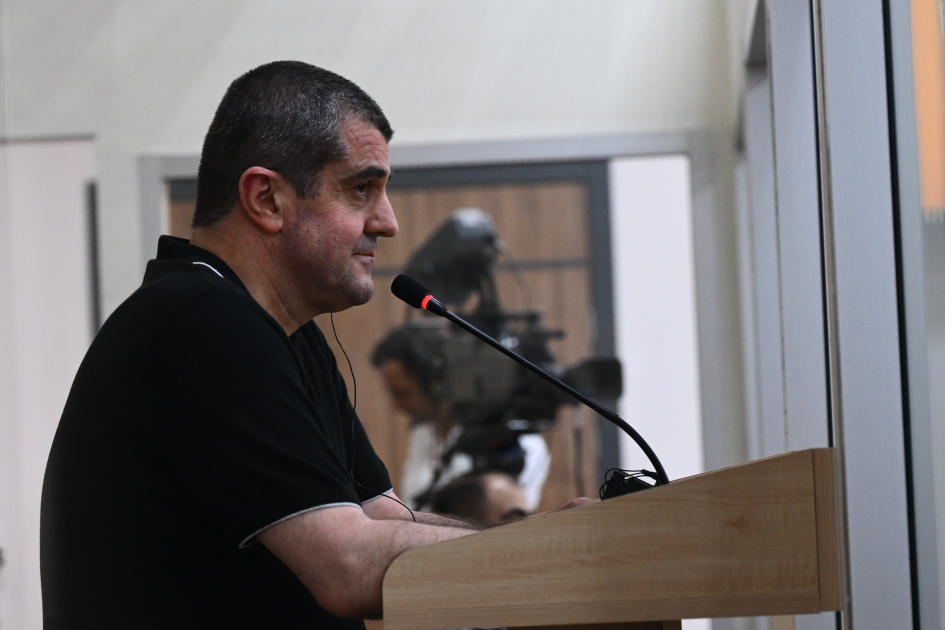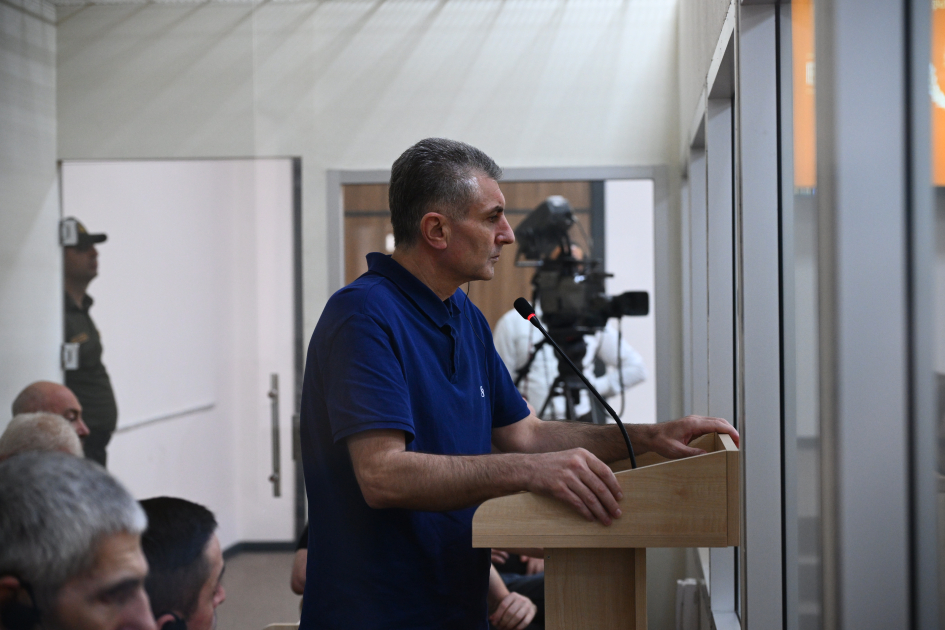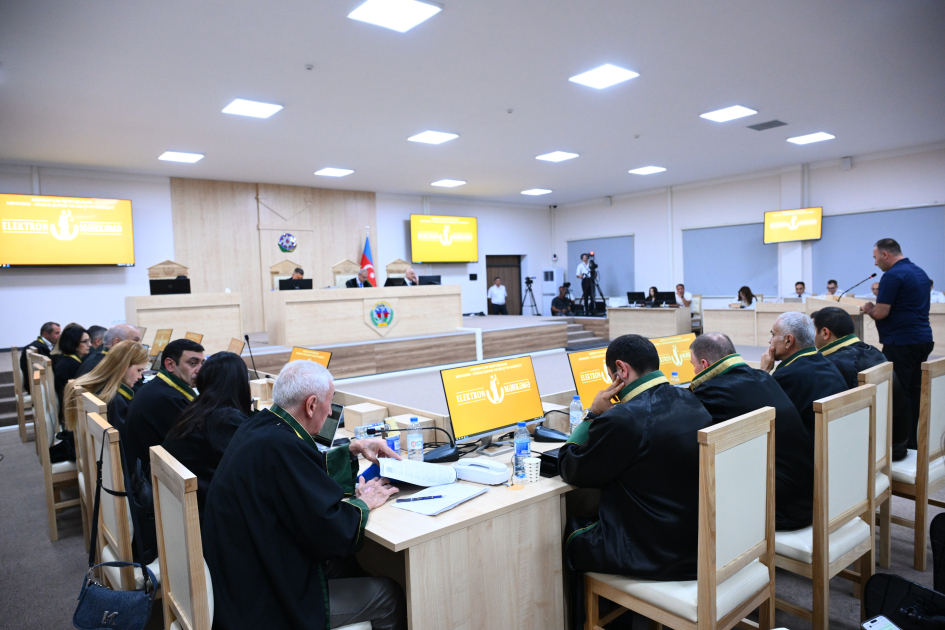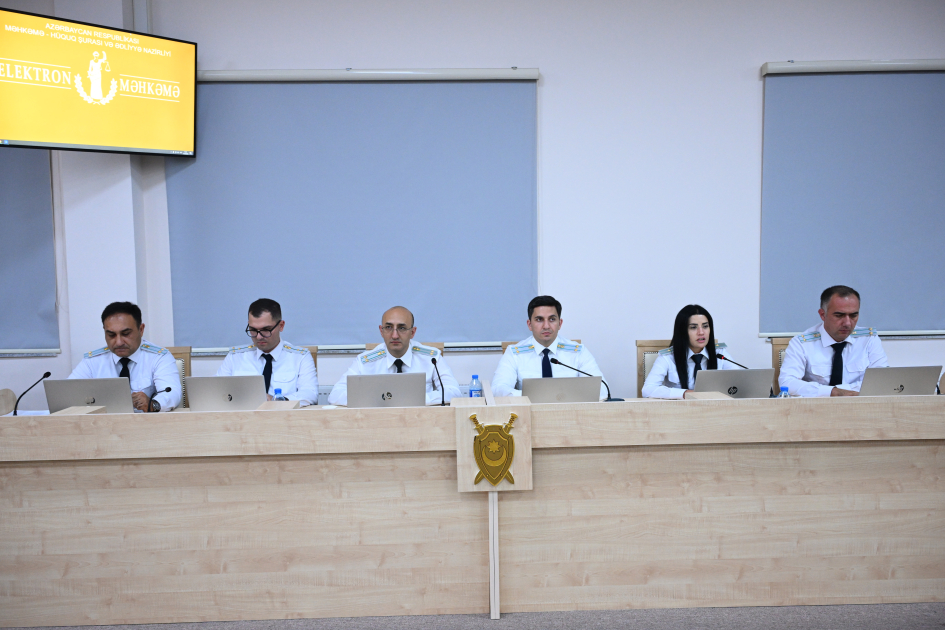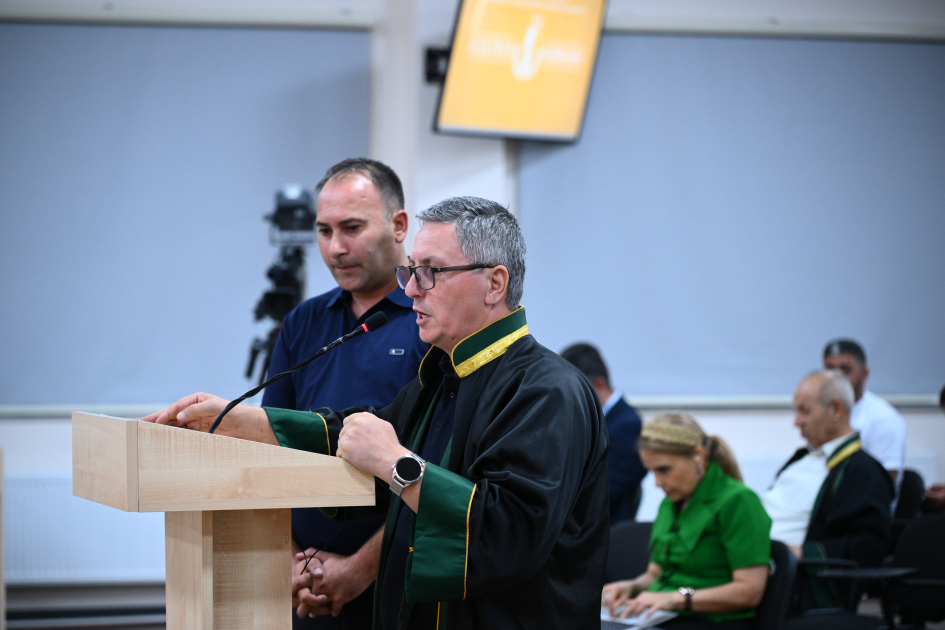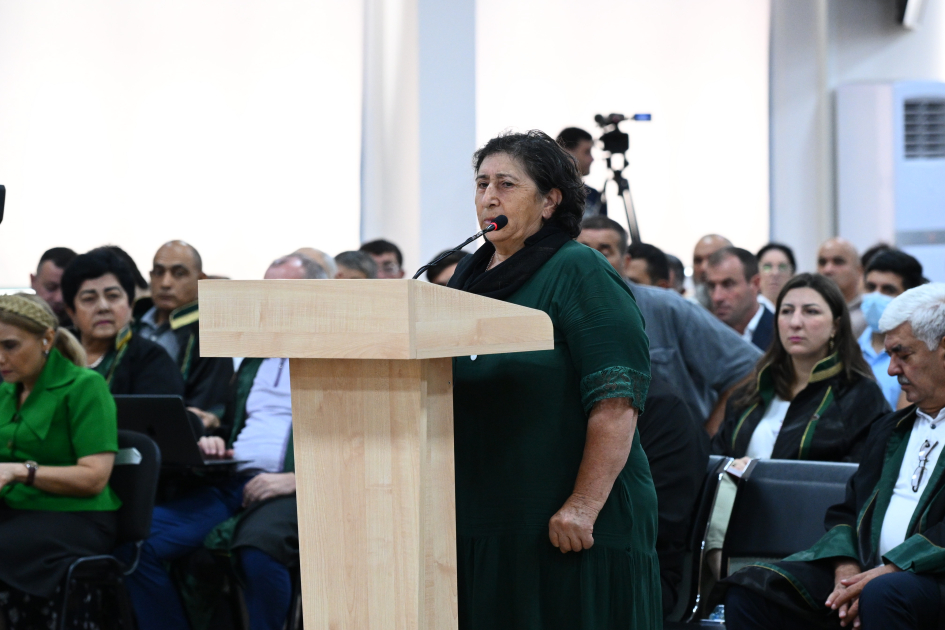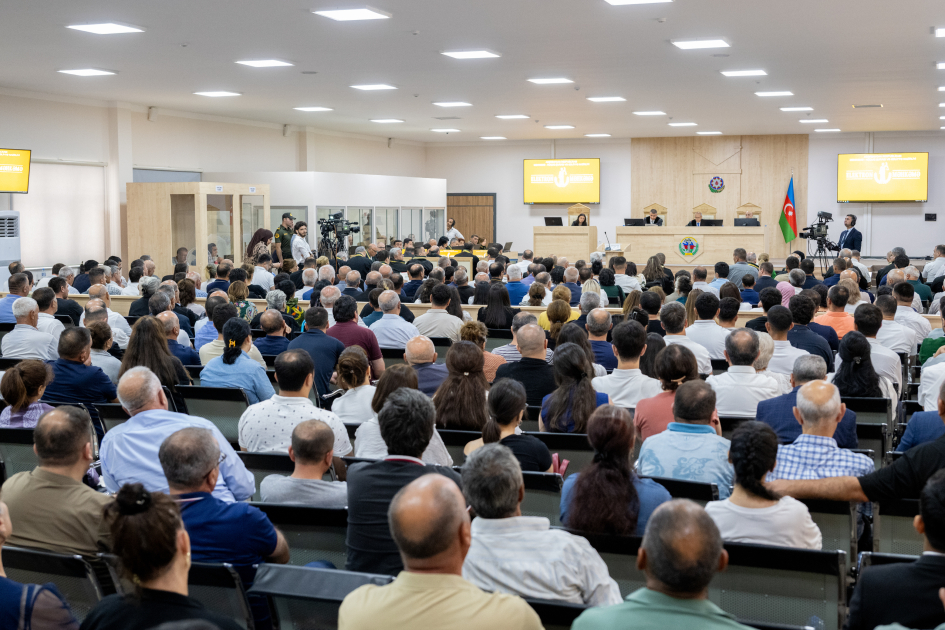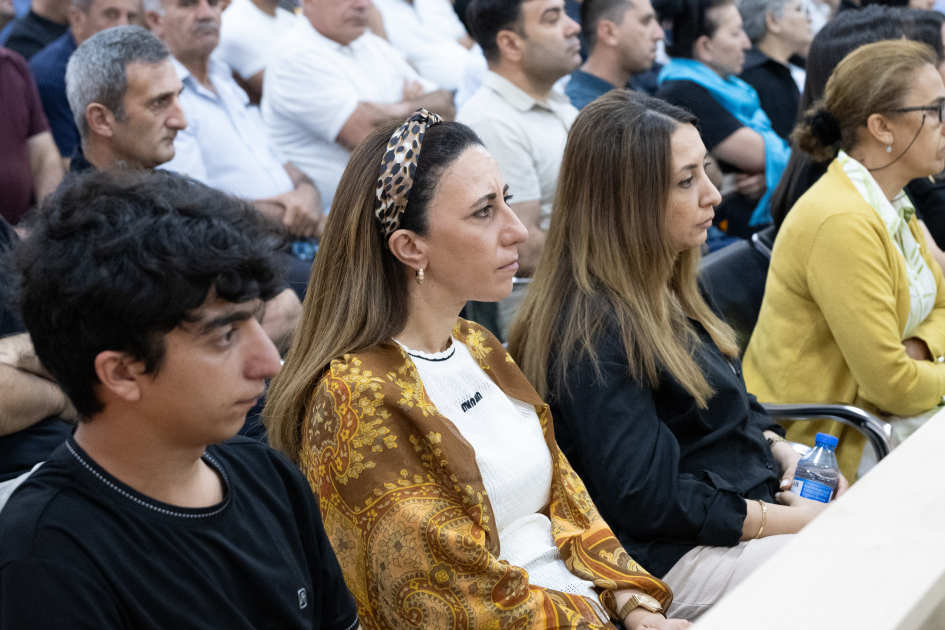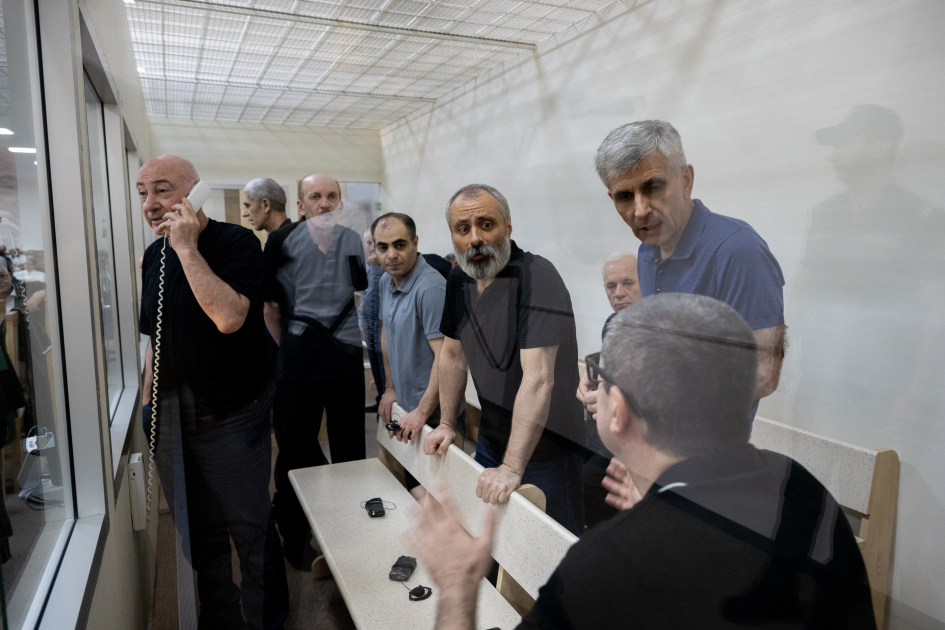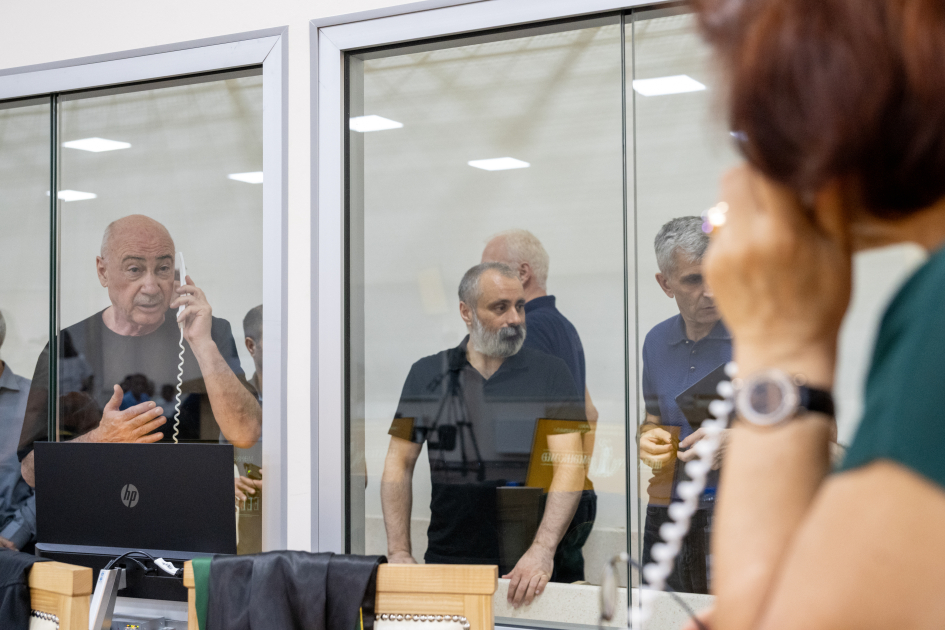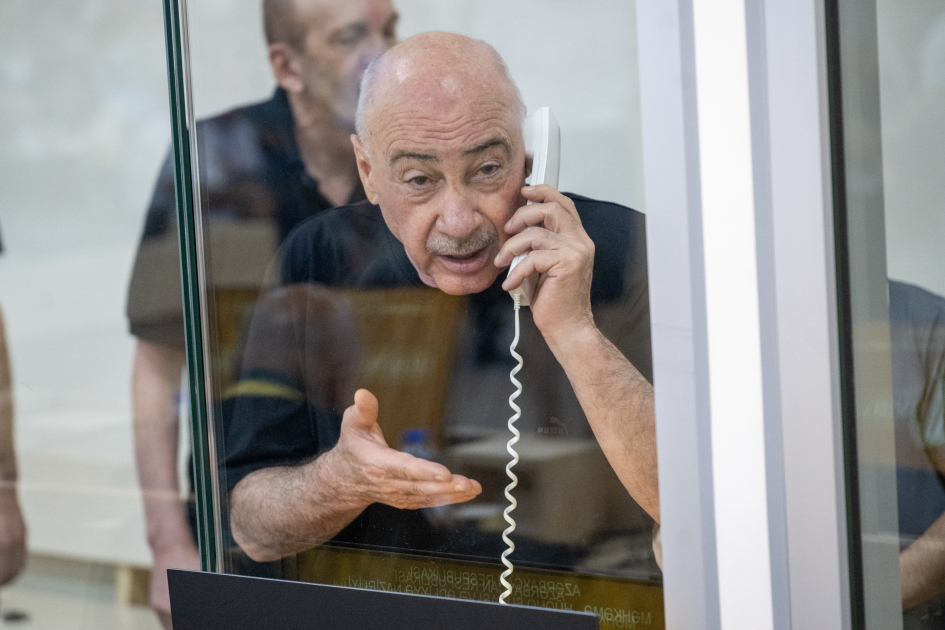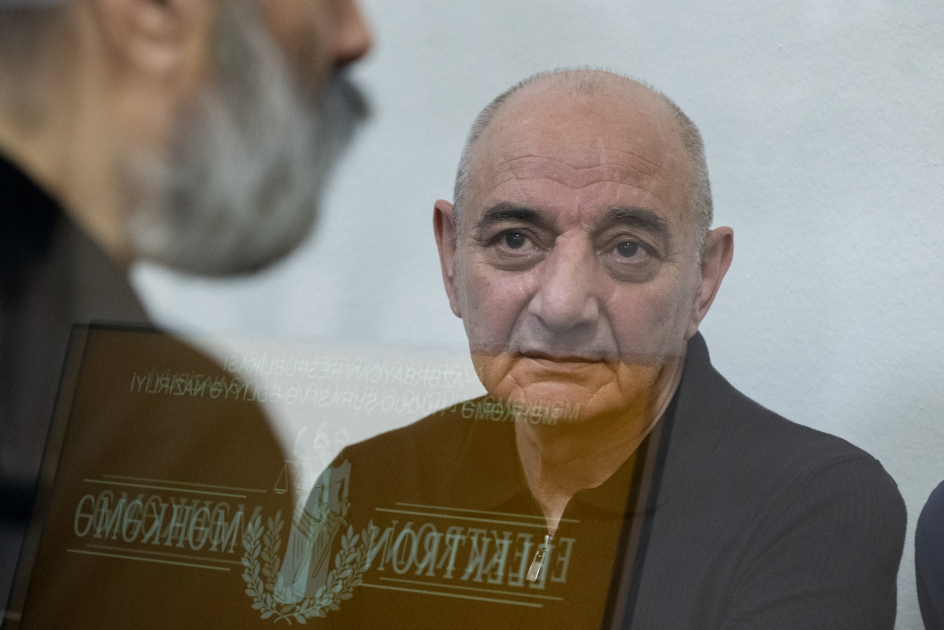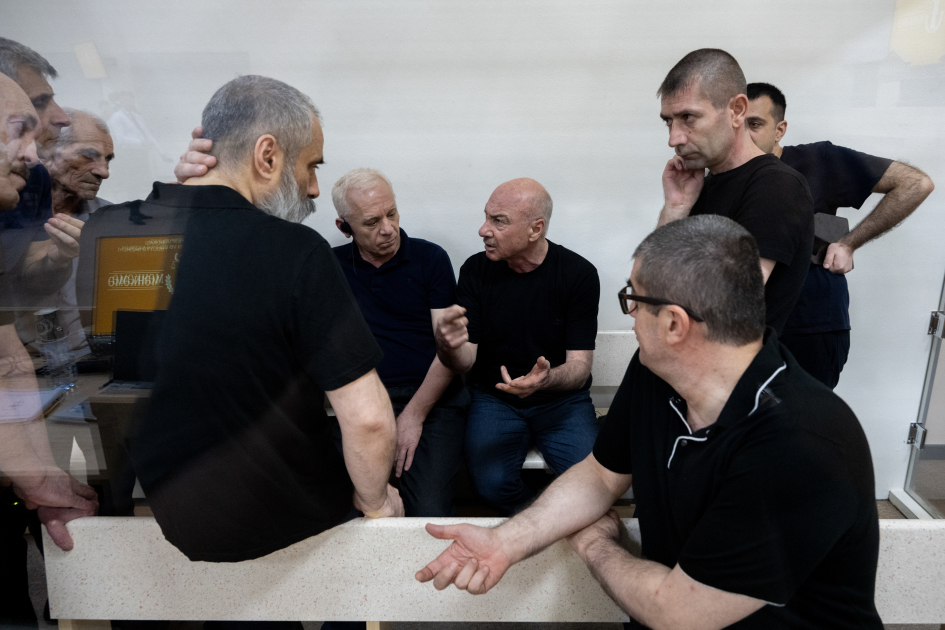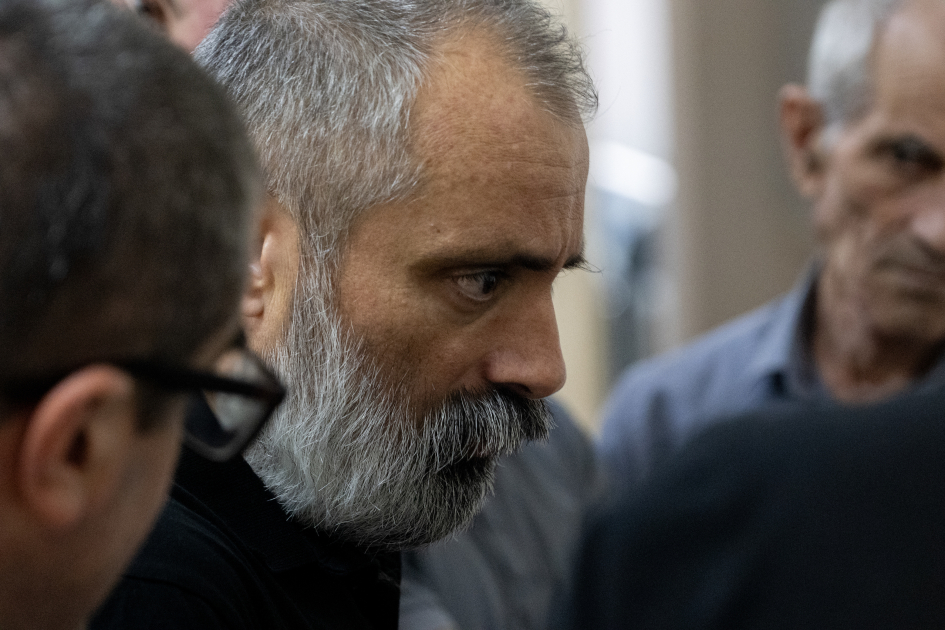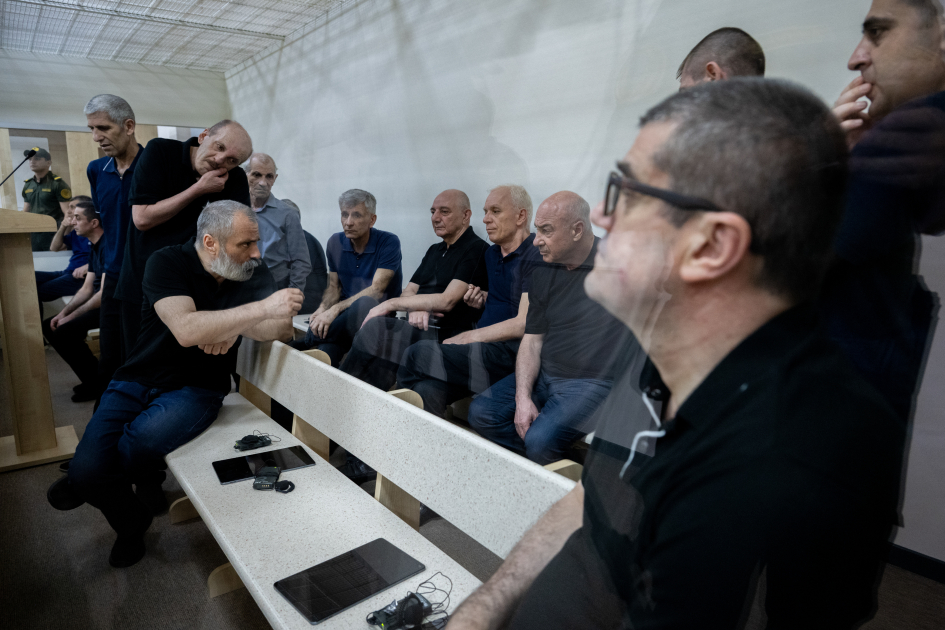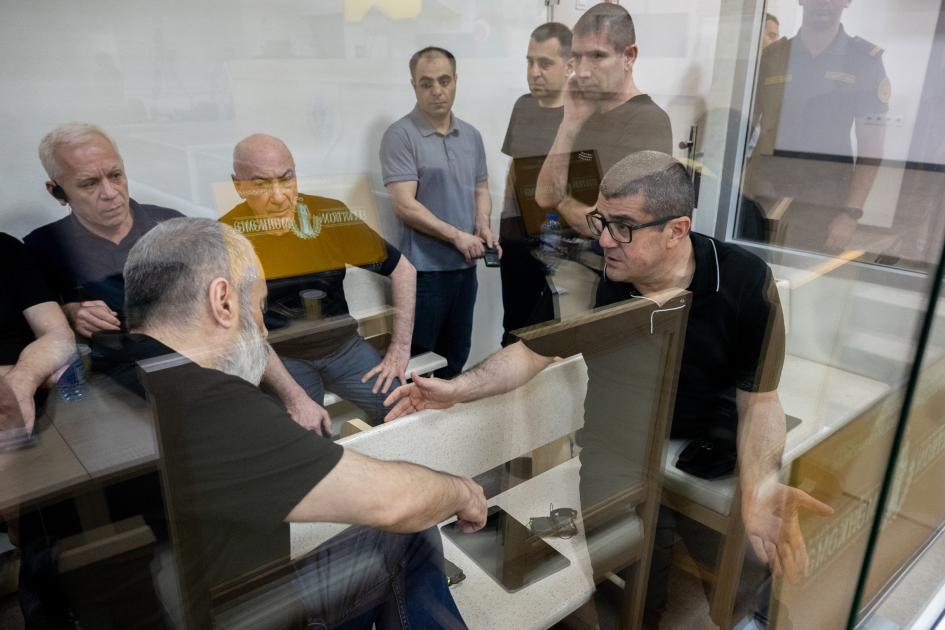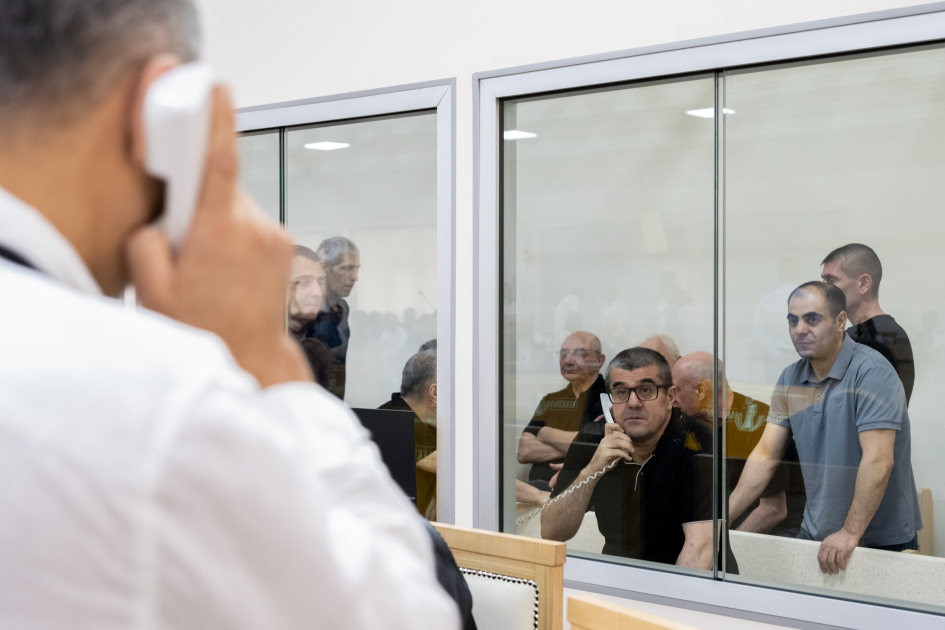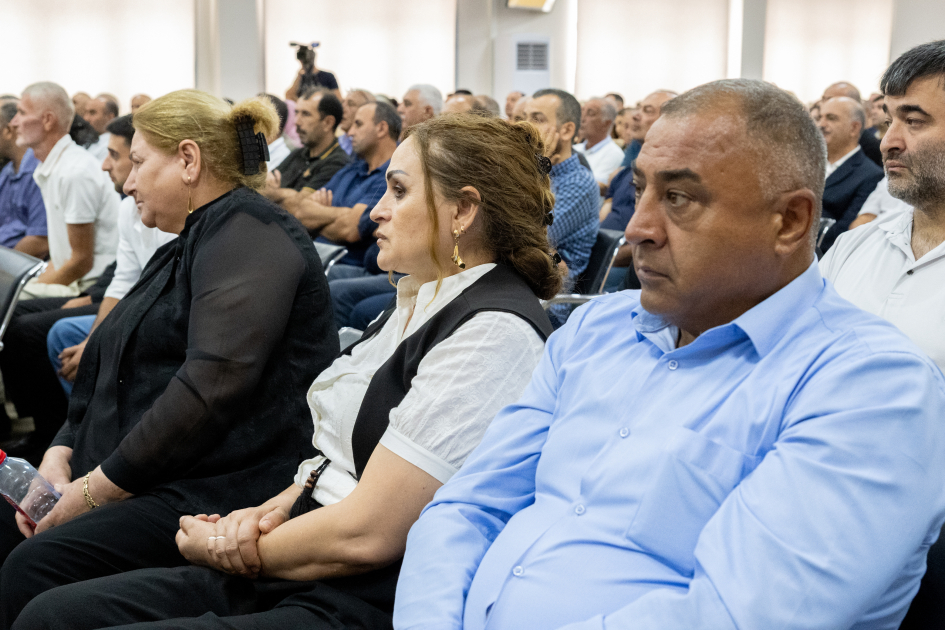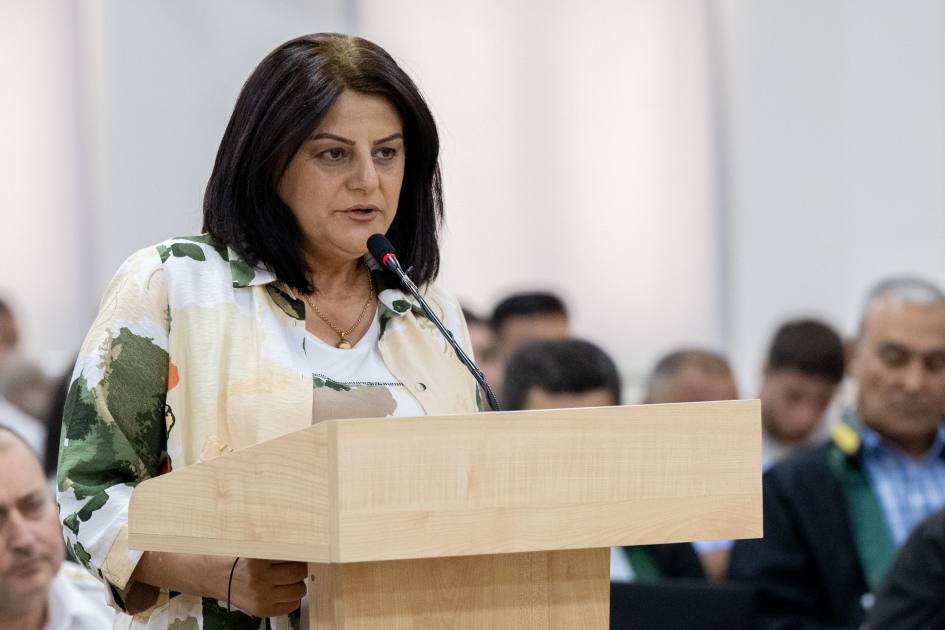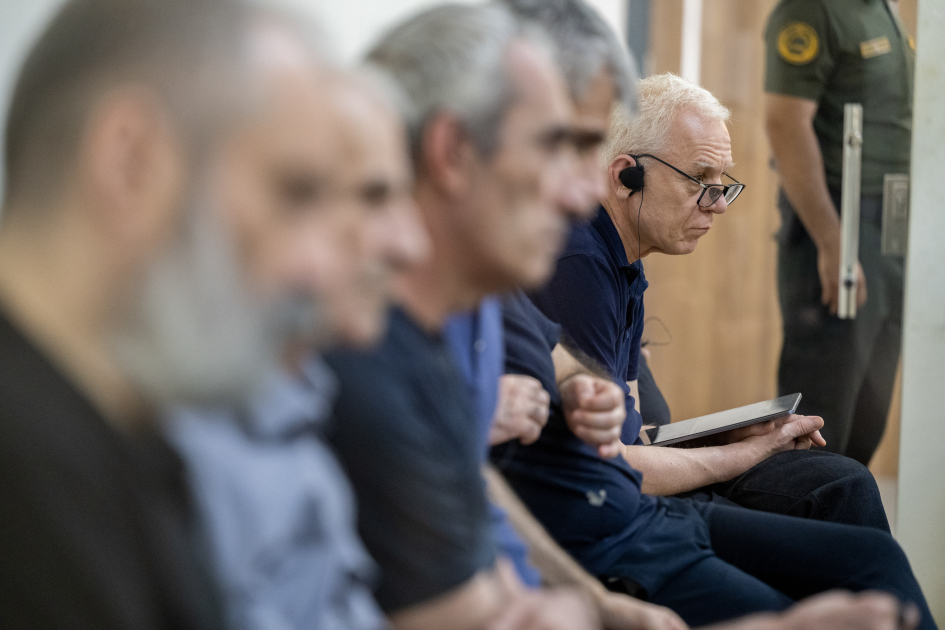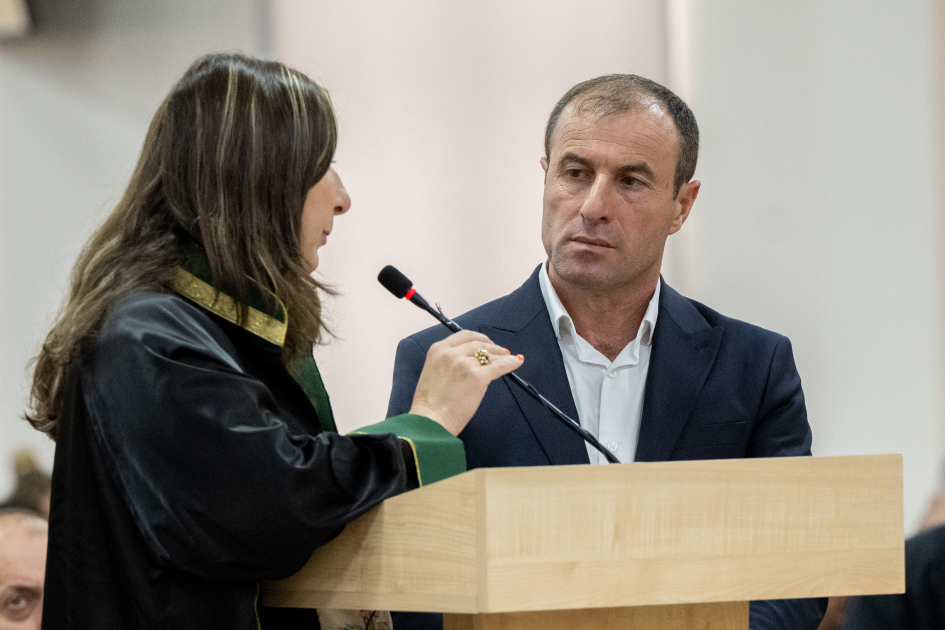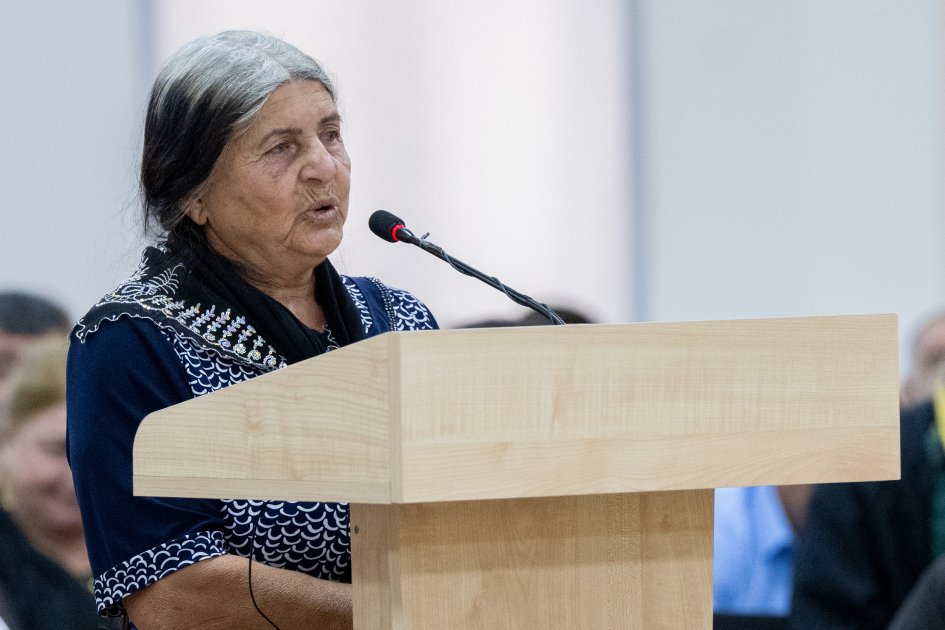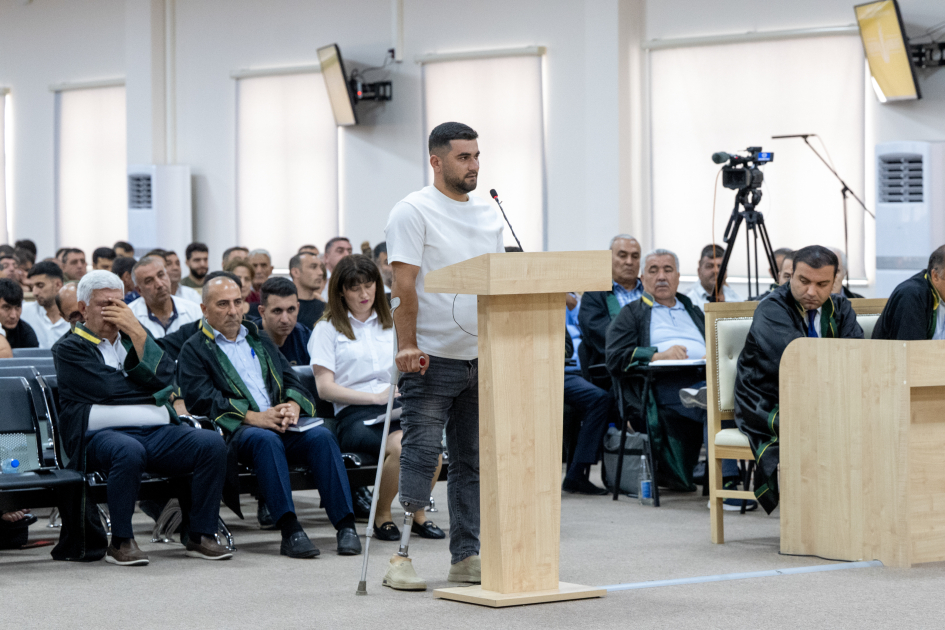BAKU, Azerbaijan, August 11. On August 11, the Baku Military Court continued open hearings on the criminal cases against Armenian citizens, including Arayik Harutyunyan, Arkadi Ghukasyan, Bako Sahakyan, Davit Ishkhanyan, David Babayan, Levon Mnatsakanyan, and others. The defendants face charges relating to crimes against peace and humanity, war crimes - including orchestrating and waging aggressive war, genocide, and violations of the laws and customs of war - as well as terrorism, financing terrorism, and the forcible seizure and retention of power. These charges stem from Armenia’s military aggression against Azerbaijan, Trend reports.
The trial, presided over by Judge Zeynal Aghayev, with Judges Jamal Ramazanov and Anar Rzayev (reserve judge Gunel Samadova), ensured that each defendant was provided with legal counsel and an interpreter in their preferred language.
The session was attended by the accused, their lawyers, multiple victims, their legal heirs or representatives, and state prosecutors.
Judge Zeynal Aghayev introduced the panel of judges, prosecutors, interpreters, and other court personnel to victims attending for the first time, explaining their legal rights and responsibilities.
The legal heir of victim Rasul Suleymanli-his mother Gunel Suleymanova—testified that Armenian armed forces launched fire during the 44-day Patriotic War in 2020, killing her son.
The legal heir of victim Hasan Akbarov, his mother Sanubar Akbarova, stated that Armenian armed forces killed her son during the Patriotic War in 2020.
In her testimony, Victim Aybaniz Orujova said that she together with her family members, including her twin sons, was captured in 1992, two days after the Khojaly massacre.
According to Orujova, she and her family members escaped to the forest during the Khojaly attack and were later captured after staying there for two days. She added that all of her family members, including her brother had been executed.
Responding to the questions from prosecutor Nasir Bayramov, the victim claimed that she had been kept in Khankendi for seven days. She was released from captivity on March 20, while her twins were released on March 30. According to her, she was severely tortured while in captivity, with Armenians holding knife to her children’s throats, threatening to cut their heads off.
In his testimony, Agil Ahmadov stated that Armenian armed forces opened fire in the Horadiz direction in April 1997, seriously injuring and capturing him. They held him in the city of Khankendi, which was then under Armenian occupation. A death sentence was issued against A. Ahmadov after a fake trial was conducted. In response to questions from Vusal Aliyev, Senior Assistant to the Prosecutor General, Ahmadov said that they handed over him to Azerbaijan after one year and 11 months in captivity. He said guards named Norik, Aram, Ashot, and others beat and tortured him. During his captivity, medical students practiced giving injections and performing other medical procedures on him.
Another victim Hafiza Safarova noted she was captured together with her family members during the attack on the Divanlilar village of the Fuzuli district on December 7, 1991. The victim said she was kept in a cold place and was ill-treated, along with other hostages during the captivity. Safarova further stated that her father Karim Safarov had died in captivity as a result of tortures. After seven days, she was released from captivity in exchange for gasoline and diesel fuel.
The legal heir of victim Oruj Jabbarov, his mother Ulviyya Jabbarova, stated that Armenian armed forces killed her son during the Patriotic War. She said that they returned his body three months later.
Saida Jafarova mentioned that Armenian armed forces shot her during the Khojaly genocide in 1992. She said that during the genocide, the enemy massacred the elderly, children, and women. In response to questions from public prosecutor Vusal Abdullayev, Jafarova said that, while injured, she had survived after crawling to the village of Shelli in Aghdam.
In their testimonies, Kenan Vahidli, Ozal Ismayilov, and Ravan Mammadov noted that they were injured as a result of fire opened by Armenian armed forces during the Patriotic War in 2020.
Sunay Adigozalov stated that he was injured on October 5, 2023, as a result of the explosion of a mine planted by the Armenian armed forces in the village of Alkhanli, Fuzuli district.
Asef Khudiyev testified that as an employee of ANAMA, on November 14, 2020, while engaged in mine clearance activities he was injured in a mine explosion in the village of Alkhanli, Fuzuli district. Later, it was determined that the mine had been manufactured in Armenia.
Emin Bakhshaliyev emphasized that he was captured by Armenian armed forces on October 1, 2020, during the Patriotic War, after being wounded in the direction of Sugovushan. Four days later, his hands were tied with wire and he was beaten. In response to questions from public prosecutor Tarana Mammadova, he said that during his captivity he was held in Khankendi, Shusha, and Yerevan, which were under occupation at the time. He was beaten, tortured, and subjected to electric shocks in all the places where he was held. Bakhshaliyev was handed over to Azerbaijan on December 14, 2020.
Responding to questions from the accused Davit Ishkhanyan, Bakhshaliyev said that his medical treatment is still ongoing.
Nuraddin Yolchuyev noted that he was wounded in the direction of Sugovushan on October 1, 2020, during the Patriotic War, and was captured the following day. He was beaten and then taken to the city of Khankendi. There, he underwent surgery without anesthesia, experiencing severe pain. He was later transferred to Yerevan, where he was subjected to beatings and torture again. He was handed over to Azerbaijan on December 14, 2020.
In their testimonies, Seymur Ahmadov, Rafail Zulfugarov, Matlab Allahverdiyev stated that they were taken hostage by Armenian armed forces on different dates. All of them were subjected to beatings and torture. M. Allahverdiyev's gold teeth were pulled out from his mouth.
Mubariz Mammadov said that he was captured on September 1, 1992, while wounded near the village of Horadiz in the Fuzuli district. In response to questions from public prosecutor Fuad Musayev, Mammadov mentioned that he was first detained in the village of Edilli, and further in the city of Yerevan. He was beaten with a machine gun butt, a rubber baton, punched and kicked, and subjected to torture during his captivity. He was handed over to Azerbaijan on May 12, 1995.
In his testimony, Khayal Abdullayev noted that on May 28, 2022, he stepped on a mine while grazing cattle in the liberated part of the Fuzuli district.
Vugar Mehdiyev said he was captured in the Fuzuli district on October 23, 1993. He escaped from captivity on December 18 of the same year.
Elshan Khalilov testified that he was injured by shrapnel from an Armenian-fired shell while working as a company driver in the Fuzuli district on July 12, 2021.
Bakhtiyar Tagiyev mentioned that he was captured by Armenian armed forces in Zangilan on the night of December 8-9, 1992. During captivity, he was subjected to beatings and torture. After being held for 1 year, 1 month and 10 days, he was handed over to Azerbaijan.
Ali Talibov stated that he was captured by Armenian armed forces in 1996 while serving in the military in Nakhchivan. He was handed over to Azerbaijan after one month and 18 days. During captivity, his nose was broken, and he was repeatedly beaten until he lost consciousness.
Daghlar Teymurov mentioned that he was wounded during the 2016 April battles and the 2020 Patriotic War.
Namet Mammadov testified that he was captured by Armenian armed forces in the Harami plain in 1994, tortured, and released after 460 days.
Javanshir Hajiyev said he was injured after stepping on a mine in the Gubadli district on April 5, 2021.
Alishan Safarov stated that he was wounded in a mine explosion on the road in Tartar on February 18, 2022.
Residents of the Tartar district - Yadigar Safarov, Mushfig Gurbanov, and Khasay Ibrahimov – emphasized that the houses were in a state of disrepair due to artillery strikes by Armenian armed forces. These strikes occurred at different times, causing the damage.
Ramiz Huseynov said that he was wounded by a mine explosion in Jabrayil in 1993.
Ilgar Najafov underscored that he was displaced from his home on April 2, 1993, due to Armenian armed forces' attack on the Kalbajar district.
Rahman Huseynov noted that he was forcibly displaced from the Dashkesan village of Jabrayil district in 1993. His father went missing at that time.
The victims - Ismayil Abbasov, Nabi Azimov, Almara Gurbanova, Vagif Chiragov, Sevda Mamishova, Khaliqverdi Nasibov, Nahid Huseynov, Faig Abbasov, Elshan Mirzayev, Alovsat Musayev - stated that they were displaced from their homes (Shusha, Aghdara, Kalbajar) due to the attacks by Armenian armed forces.
Victims also responded to questions from the accused, including Arayik Harutyunyan, David Manukyan, David Babayan, Davit Ishkhanyan, their defense attorneys, and their own representatives.
The trial will continue on August 14.
Fifteen defendants of Armenian origin are accused in the criminal case concerning numerous crimes committed during the aggressive war waged by the Armenian state - including the aforementioned criminal association - on the territory of Azerbaijan, in violation of domestic and international legal norms. These crimes were committed for the purpose of military aggression against Azerbaijan and were carried out under the direct leadership and participation of the Armenian state, officials of its state institutions, its armed forces, and illegal armed formations, through their written and verbal orders, instructions, and guidelines; material, technical, and personnel support; centralized management; as well as under strict control and under the leadership and direct or indirect participation of Robert Sedraki Kocharyan, Serzh Azati Sargsyan, Vazgen Mikaeli Manukyan, Vazgen Zaveni Sargsyan, Samvel Andraniki Babayan, Vitali Mikaeli Balasanyan, Zori Hayki Balayan, Seyran Musheghi Ohanyan, Arshavir Surenovich Garamyan, Monte Charles Melkonyan, and others.
The following individuals - Arayik Vladimiri Harutyunyan, Arkadi Arshaviri Ghukasyan, Bako Sahaki Sahakyan, Davit Rubeni Ishkhanyan, David Azatini Manukyan, Davit Klimi Babayan, Levon Henrikovich Mnatsakanyan, Vasili Ivani Beglaryan, Erik Roberti Ghazaryan, Davit Nelsoni Allahverdiyan, Gurgen Homeri Stepanyan, Levon Romiki Balayan, Madat Arakelovich Babayan, Garik Grigori Martirosyan, and Melikset Vladimiri Pashayan - are being charged under the following articles of the Criminal Code of the Republic of Azerbaijan: Article 100 (planning, preparing, initiating, and waging a war of aggression); Article 102 (attacking persons or organizations enjoying international protection); Article 103 (genocide); Article 105 (extermination of the population); Article 106 (enslavement); Article 107 (deportation or forced displacement of population); Article 109 (persecution); Article 110 (enforced disappearance of persons); Article 112 (deprivation of liberty contrary to international law); Article 113 (torture); Article 114 (mercenary service); Article 115 (violation of the laws and customs of warfare); Article 116 (violation of international humanitarian law during armed conflict); Article 118 (military robbery); Article 120 (intentional murder); Article 192 (illegal entrepreneurship); Article 214 (terrorism); Article 214-1 (financing terrorism); Article 218 (creation of a criminal organization); Article 228 (illegal acquisition, transfer, sale, storage, transportation, and possession of weapons, ammunition, explosives, and devices); Article 270-1 (acts threatening aviation security); Article 277 (assassination of a state official or public figure); Article 278 (forcible seizure and retention of power, forcible change of the constitutional structure of the state); Article 279 (creation of armed groups not provided for by law); and additional articles.

